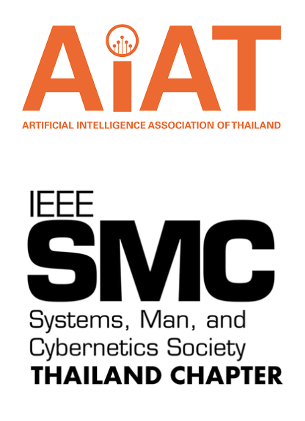Investigating shame and selfishness in two-stage choice problems with interdependent alternatives
DOI:
https://doi.org/10.14456/jiist.2022.10Keywords:
Two-stage choice problem, Sequential decision-making, Utility theory, Altruism, Selfishness, Shame, Subjective norm, Dictator gameAbstract
Decision makers often have to reason about the fairness of their choices, especially when many partners are involved. This situation has urged the use of preferences that could encode the notions of fairness and altruism. There are instances of problems that suggest that the partners of the decision maker have interdependent preferences over the possible alternatives and that they might influence each other. In this paper, we investigate payoffs between the decision maker and passive recipients on second-stage choice problems. We provide a canonical example with dependent and independent alternatives and show how it affects the fairness and private payoffs of the decision maker.
References
T. N. Cason and V.-L. Mui, "Social influence in the sequential dictator game," Journal of mathematical psychology, vol. 42, no. 2-3, pp. 248-265, 1998.
G. E. Bolton, E. Katok, and R. Zwick, "Dictator game giving: Rules of fairness versus acts of kindness," International journal of game theory, vol. 27, no. 2, pp. 269-299, 1998.
E. Fehr and K. M. Schmidt, "A theory of fairness, competition, and cooperation," The quarterly journal of economics, vol. 114, no. 3, pp. 817-868, 1999.
J. Andreoni and J. Miller, "Giving according to garp: An experimental test of the consistency of preferences for altruism," Econometrica, vol. 70, no. 2, pp. 737-753, 2002.
F. Gul and W. Pesendorfer, "Temptation and self-control," Econometrica, vol. 69, no. 6, pp. 1403-1435, 2001.
F. Gul and W. Pesendorfer, "Self-control and the theory of consumption," Econometrica, vol. 72, no. 1, pp. 119-158, 2004.
F. Gul and W. Pesendorfer, "Self-control, revealed preference and consumption choice," Review of Economic Dynamics, vol. 7, no. 2, pp. 243-264, 2004.
D. Dillenberger and P. Sadowski, "Ashamed to be selfish," Theoretical Economics, vol. 7, no. 1, January 2012.
B. Lipman and W. Pesendorfer, Temptation. United Kingdom: Cambridge University Press, Jan. 2011, pp. 243-288.
T. Ito, "Effect of morality for automated negotiating agents: A preliminary result," in ACAN, 2018.
J. V. Neumann and O. Morgenstern, Theory of Games and Economic Behavior. Princeton University Press, 1944.
R. L. Keeney and H. Raiffa, Decisions with Multiple Objectives: Preferences and Value Trade-Offs. Cambridge University Press, 1993.
H. Tamura and Y. Nakamura, "Decompositions of multiattribute utility functions based on convex dependence," Operations Research, vol. 31, no. 3, 1983.
R. H. Strotz, "Myopia and inconsistency in dynamic utility maximization," The Review of Economic Studies, vol. 23, pp. 165-180, 1955.




